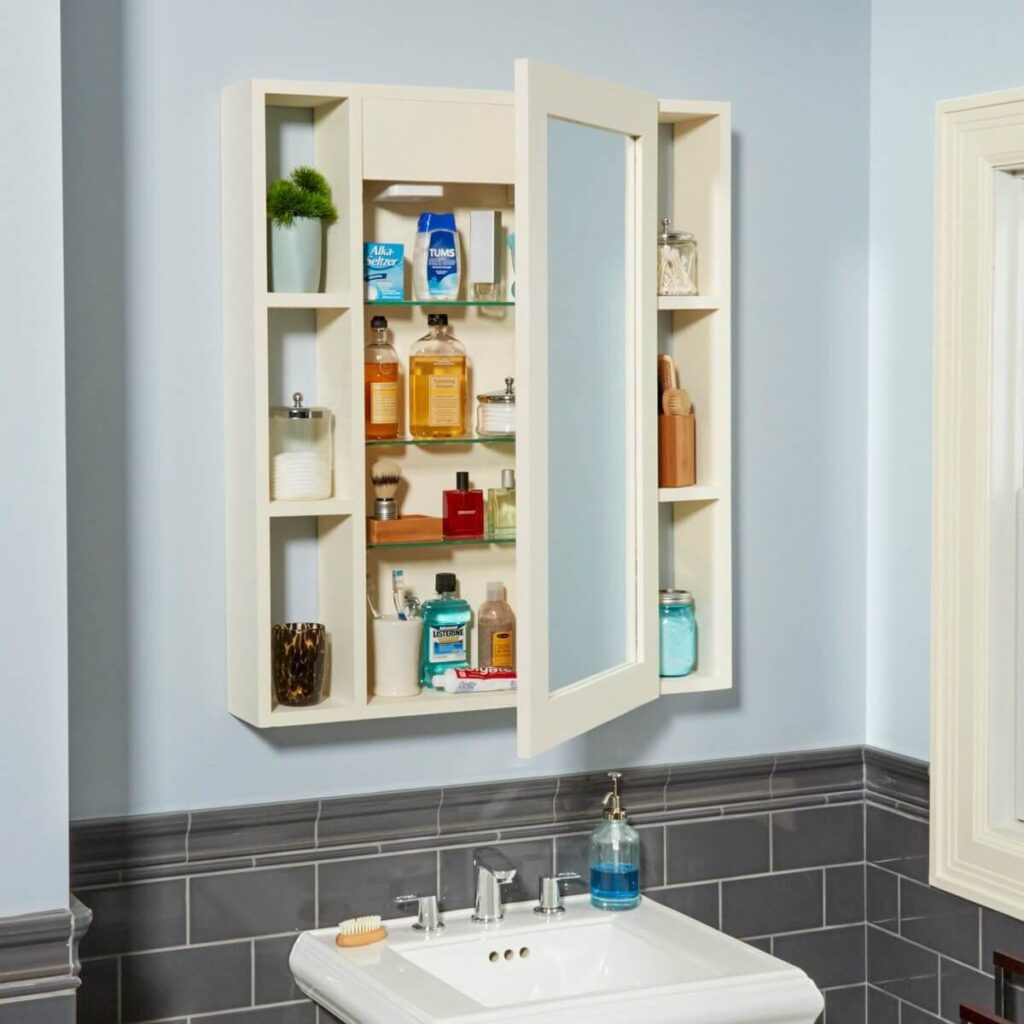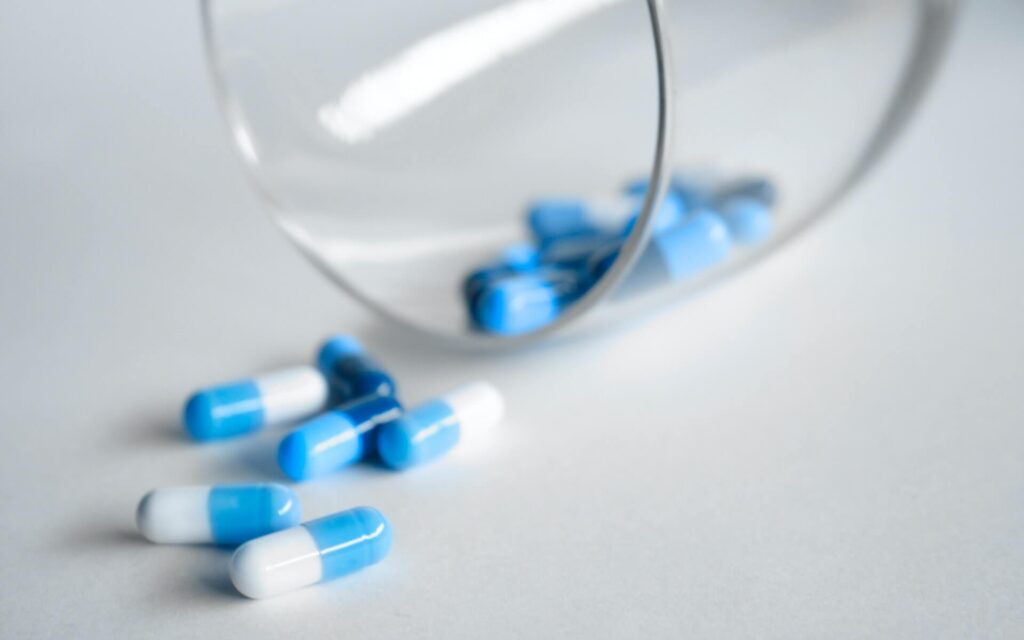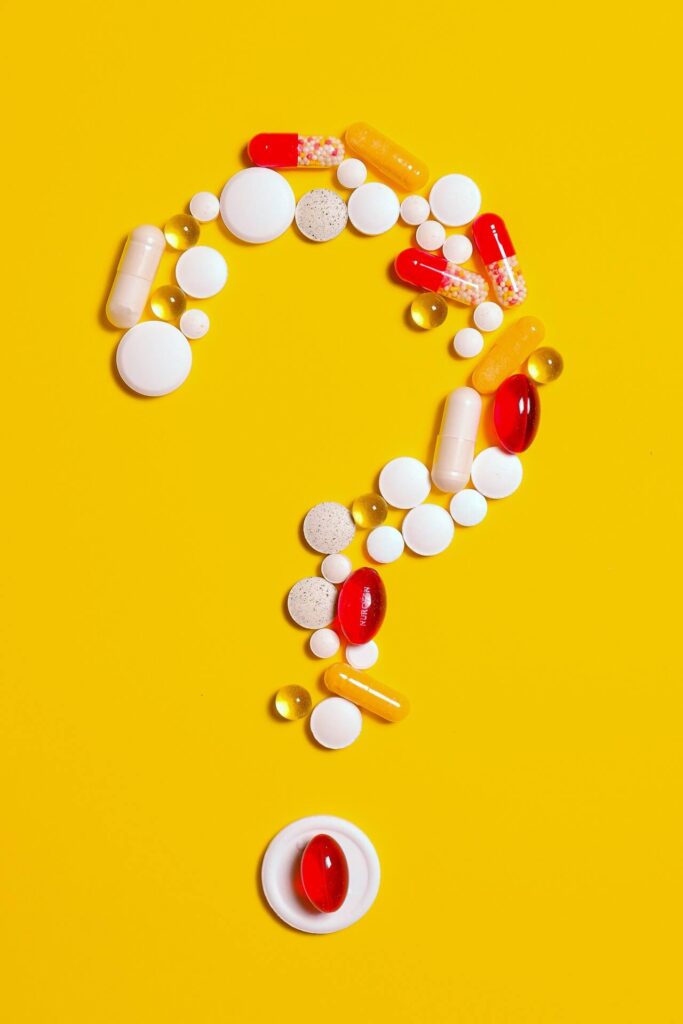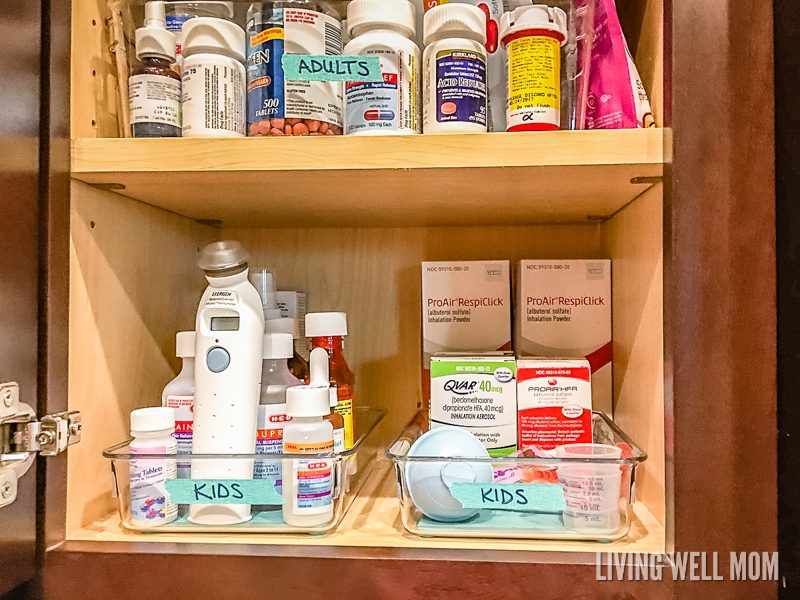Medicine Cabinet Mistakes? The medicine cabinet is a common fixture in any household. And yes, we get that it may be a drawer, or a tub, or something else and not an official medicine cabinet, but whatever it is, it’s importance can not be understated.
It is the medicine cabinet we turn to when we need plasters, thermometers, must have medicines at home, our trusty old cough syrup bottle, or something to dull that persistent headache.
So, what are the 5 medicine cabinet mistakes that we all seem to make at least once?
1. Not keeping medication secure and out of reach of children

Can little fingers reach your medicines? This could result in accidental ingestion or application of medications that can make a child very sick, and we all know that to a young, curious mind, a bright small pill may look appetising.
A medicine lock box with a key, or combination access, stored out of sight will prevent accidents from happening. You can even take it one step further and get yourself a medicine container box, or some plastic pill containers, making it just a little bit harder to obtain for those who shouldn’t be taking meds. Medicine Cabinet Mistake 1 averted.
2. Storing medication in a spot that gets warm an/or damp.


Positioning your medicine cabinet in the bathroom or above the oven are not the best places!
Even storing your medication in the glove box of the car is a no-no.
Heat, moisture and bright light can affect the potency of medications, rendering daily medicine and prescription pain medicine ineffective.
Also, some medicines need to be refrigerated – it will say so on the packaging.
3. Keeping out of date medications

Taking expired medication can be harmful! Medicines break down over time and they may not be effective once they are out of date.
Some medicines are at risk of bacterial growth or can break down into dangerous chemicals once expired. We recommend that you have a look through your medicine cabinet, and dispose of out of date and no longer needed medications.
Dispose of them by taking them back to your local pharmacy to be destroyed safely, rather than throwing them in the bin or down the drain. Medical Disposal in this way also prevents others from taking medication that is now classed as “not for medicinal use”
4. Not realising you have different brands with the same active ingredients eg. Panamax and Paracetamol

You might have different brands of the same medication! This can lead to doubling up of doses, causing side effects or organ damage.
For example, Panamax, Dymadon and Lemsip Cold & Flu all contain paracetamol (aka acetaminophen) and it can be easy to take a couple of tablets along with a cold and flu sachet. Taking too much paracetamol can cause irreversible liver damage!
Make sure to read the active ingredients on the packaging and check with a medication expert before taking common medications to avoid overdosing.
5. Keeping medicines for ‘just in case’

Have you ever been prescribed something like antibiotics, forgetting to take them once you felt better? Or perhaps saving them for when you feel sick again in the future?
You could be contributing to antibiotic resistance!
This means that the antibiotics may not work at all when you need them too. When you feel sick, have a consultation with a health professional to confirm your diagnosis and get the right treatment. This may result in your disposing of those expired drugs or getting new medication.
Many of our customers have needed a hand in sifting through their medicine closet, so we now have a specialist Medical Cabinet Audit Service available. The whole process is performed via telehealth and together our pharmacists can go through what is in your cabinet, checking the viability and dates on the bottles. We can even provide an updated treatment plan for your family. Click here to book your Medicine Cabinet Audit

